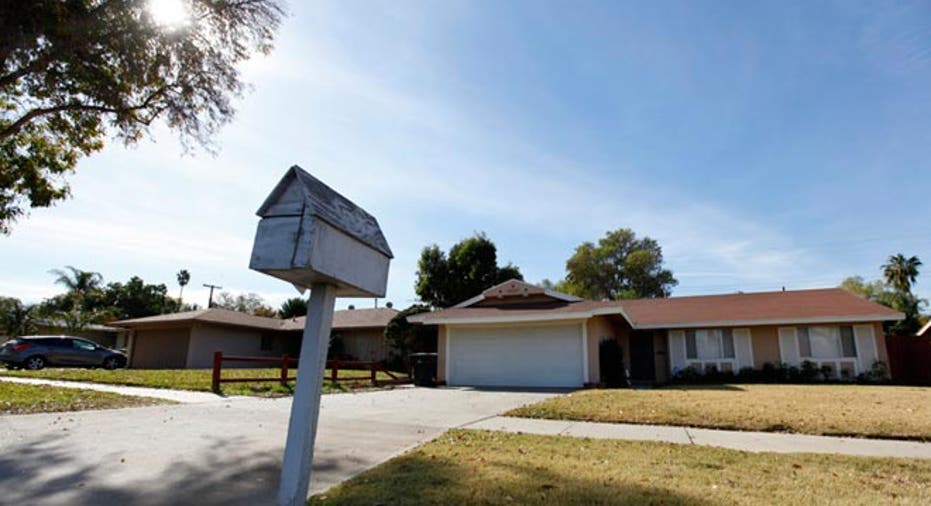Should You Use Your Home to Fund Retirement?

Need more money for retirement? Sometimes, there’s no place like home.
For many baby boomers your home is your biggest investment, so it might make sense to include the equity you have built into your home to help fund your retirement. But while your home is definitely part of your overall net worth, how it factors into your retirement savings depends on what that equity can provide.
Robert Stammers, CFA, director of Investor Education at CFA Institute, discussed how baby boomers can use their home to help fund a secure retirement.
Boomer: How does one develop an investing strategy for the profits from a home sale?
Stammers: The first step is to determine the role that residential real estate has in your investment portfolio. This is not just for your house: Every asset in your portfolio should have a role in helping you achieve your investment goals.
There are some questions that need to be asked early:
Am I going to need the equity in my home to finance the gaps in my retirement funding?
Do I want to live in my home for an extended period of time (maybe for the rest of my life)?
Is there a possibility that I will move during retirement?
Do I want to leave the family home to my heirs?
These questions will help one to determine early the ultimate plan for monetizing the equity in one’s home. By understanding the role that the home plays within the investment portfolio, it is much easier to make less emotional, more rational decisions about holding or ultimately liquidating the asset.
The same holds for the proceeds from sale if the plan is to liquidate or downsize. Retirees should know early on if the proceeds are needed to fund a financing gap, or if the home represents a large percentage of their overall wealth. If they need to be reinvested in a way that increases diversification and thus reduces the investment risk, it will be very helpful to plan for that.
Boomer: You say baby boomers often make poor decisions with the money from the home sale – how so?
Stammers: I think many boomers never really understood what their retirement would look like or the amount of wealth they would need to accumulate in order to provide adequate income to finance their retirement lifestyle. Because of this, many investment decisions are made from a point of desperation or due to lack of choices because they were not originally planned for.
You see a lot of retirees either downsizing, selling their homes, moving to less expensive locales, or taking out reverse mortgages, because the equity in their homes became the financing vehicle of last resort. Since, in many cases, there was not a plan for how to use the proceeds from a sale, there is a greater chance that the proceeds will not be employed as optimally as possible.
Boomer: Does downsizing always pay off?
Stammers: A lot of homeowners misunderstand how value is created in real estate and how to fairly assess the value of their current residence and the one they hope to purchase with some of the sales proceeds. In addition, many homeowners underestimate the transaction costs that are required for both the sale and purchase of property.
Retirees wishing to reduce costs should realize that downsizing doesn't always result in cost savings. Homeowners who overestimate the value of their home or underestimate the cost of the new property or who miscalculate the impact of taxes or transaction costs may find that their decision doesn't provide the expected proceeds or cost savings. According to the National Endowment for Financial Education, if you can't cut your expenses by at least 25%, downsizing may not be a suitable option.
Boomer: What other possible ways are there for boomers to unlock equity for their retirement?
Stammers: Although there are limited ways to monetize the equity in one’s home outside of an asset sale, there are some. The most popular is the use of home equity lines of credit (HELOC), that can be used to finance short term or unexpected expenses. The benefit of the HELOC is that interest only accrues on the actual amount of the funds and for the time borrowed.
It also allows retirees to continue to finance their retirement in inopportune times to sell securities or other investments. Because of the relatively low interest rates, some retirees have either gone into retirement with a first mortgage note or taken out a new first mortgage, because they believe that by investing in the market they can receive a return that at least matches the cost on their loan.
Finally there is the reverse mortgage. Although some people have found it to be an appropriate financing source, it is really only appropriate for a very specific group of people. These are retirees that have decided that they do not want to sell their homes, want to live in their homes for the rest of their lives, and have no wish to pass on the properties to their heirs. Anyone else that decides on a reverse mortgage and then decides to move or sell their home will often find that a sale of the property would have worked out better.
If you are unsure of what to do next, consider talking with a financial advisor to help assess your options and see how your retirement portfolio stacks up with the goals you have in place. A trusted advisor who understands your rights can provide objective advice and may help you make difficult financial decisions regarding what to do with your home in retirement.



















